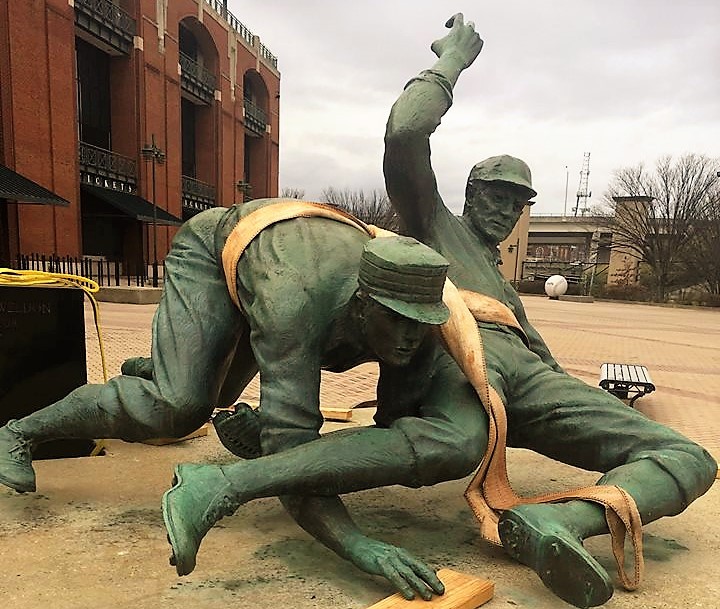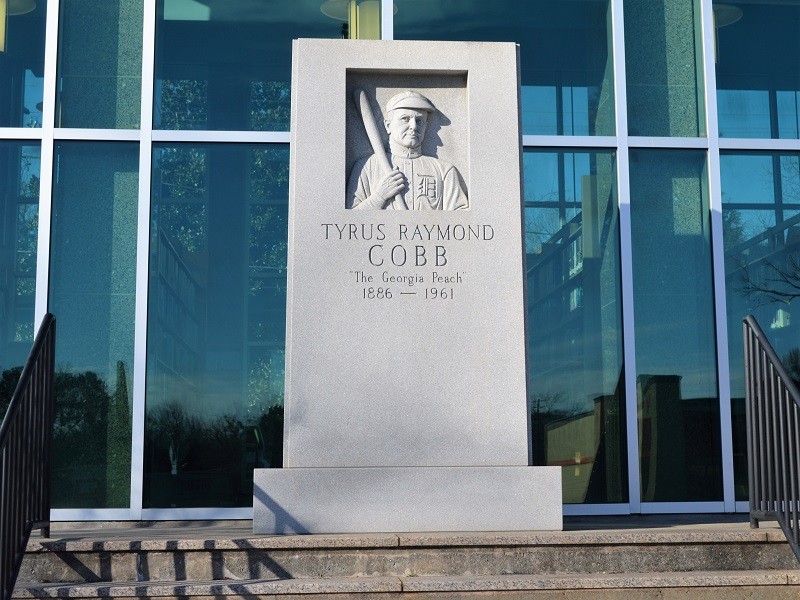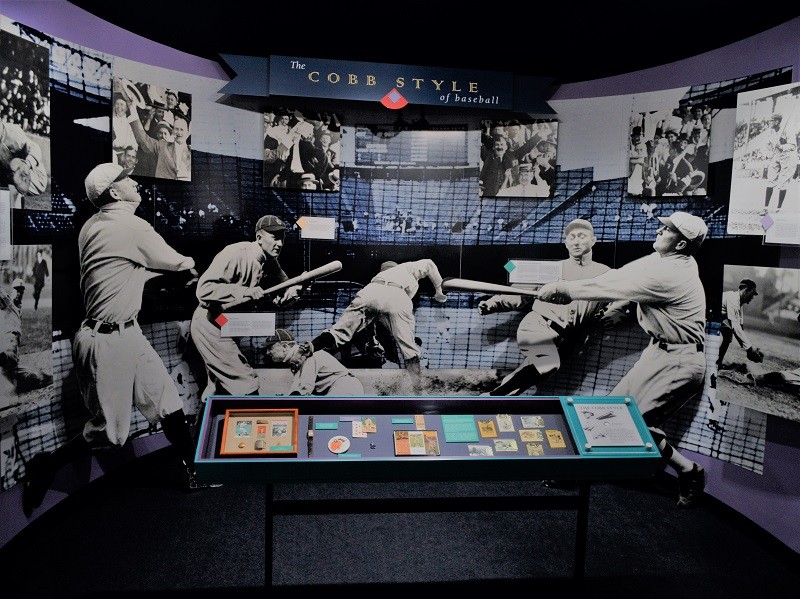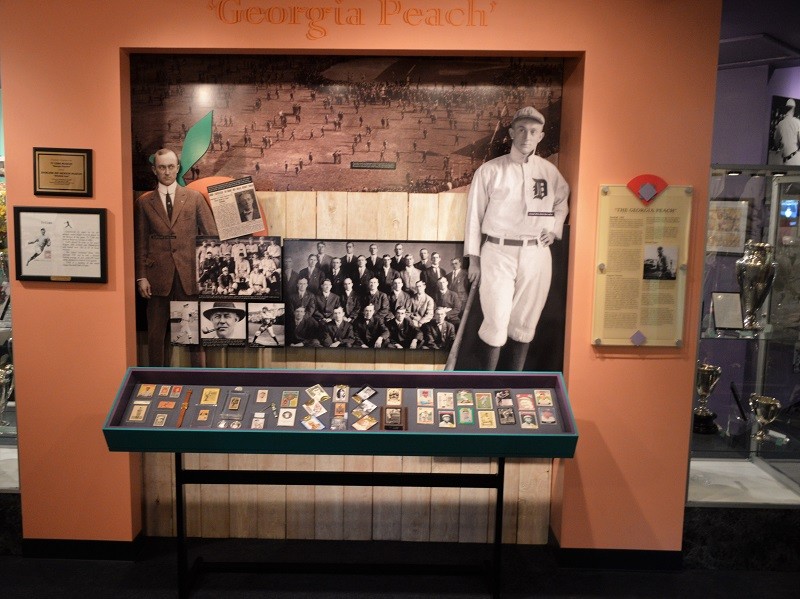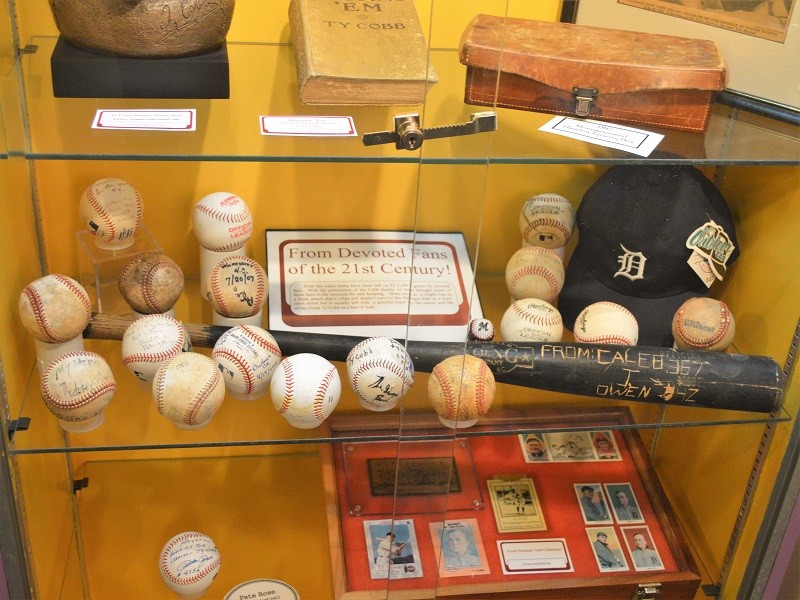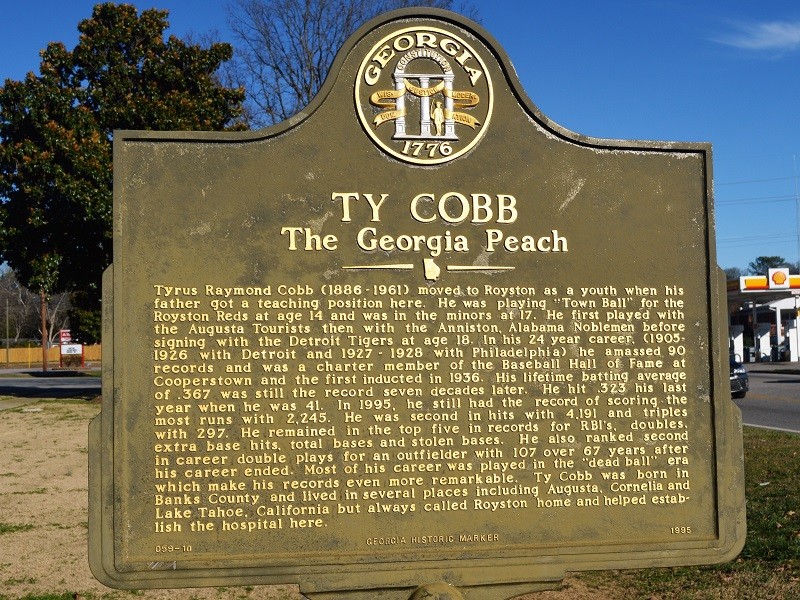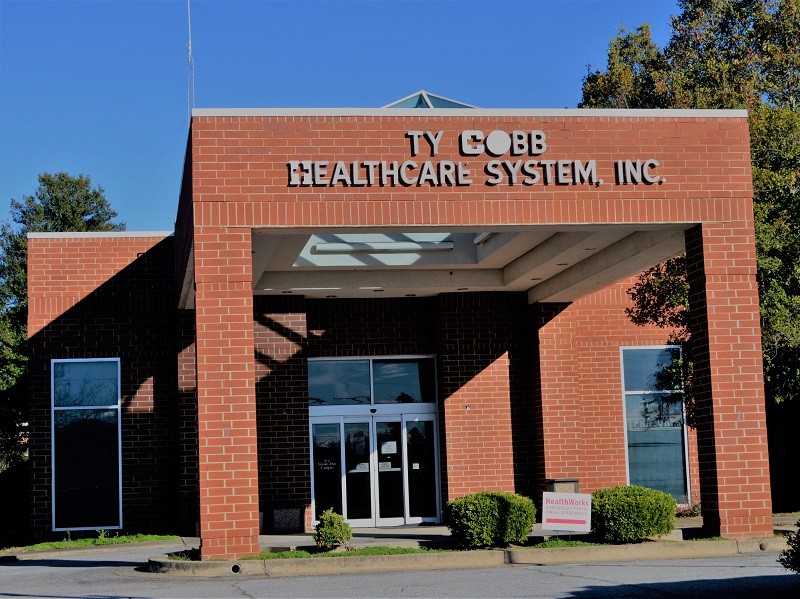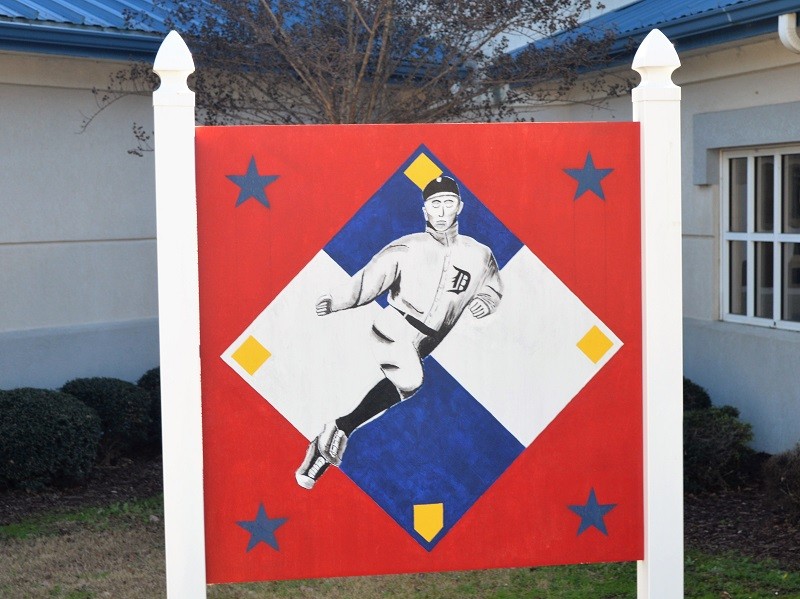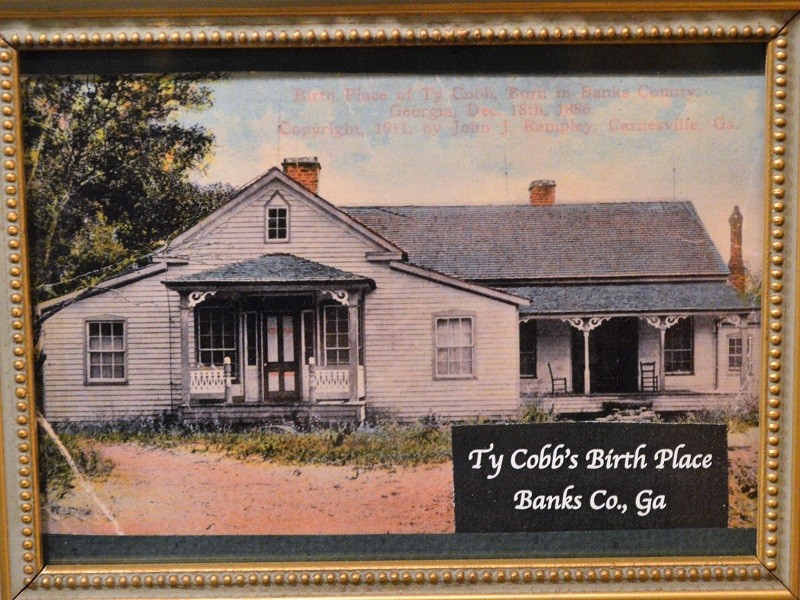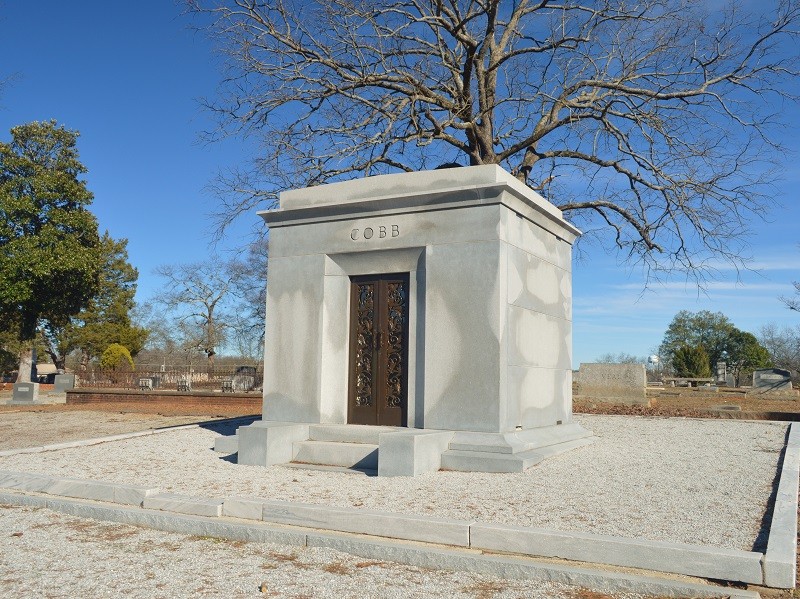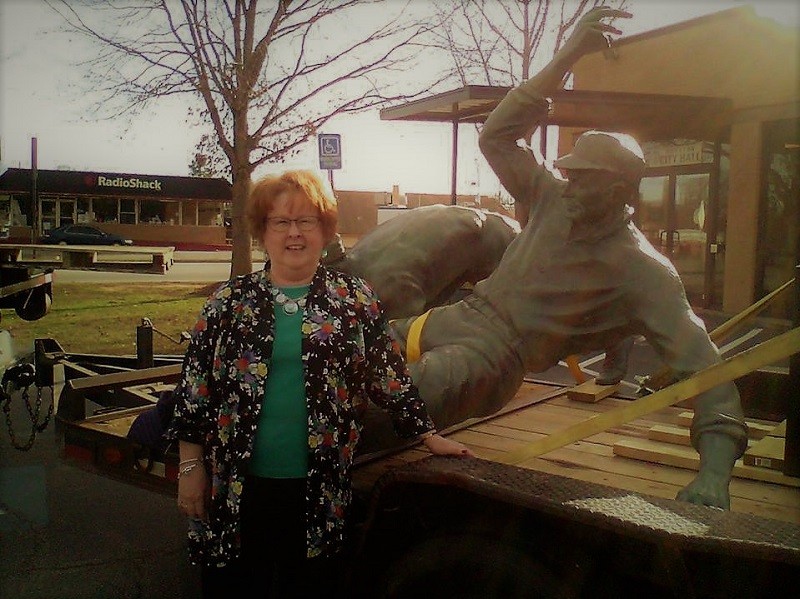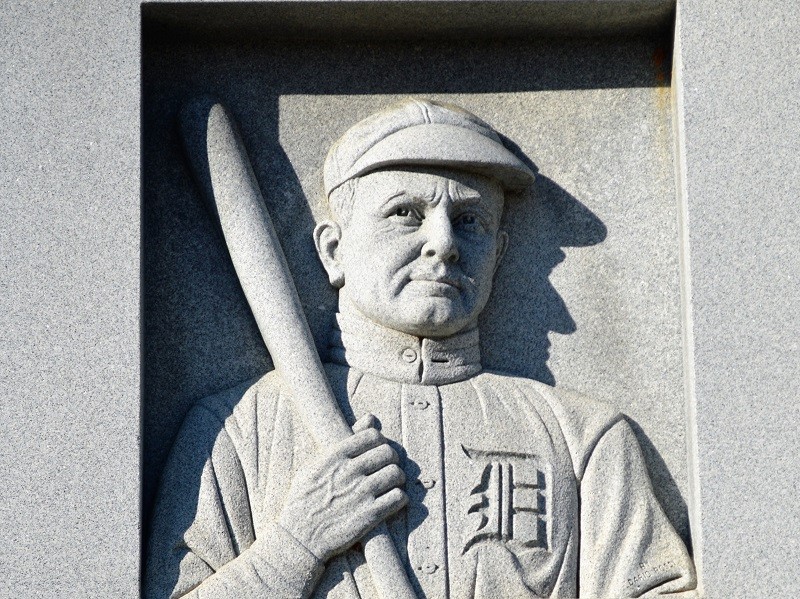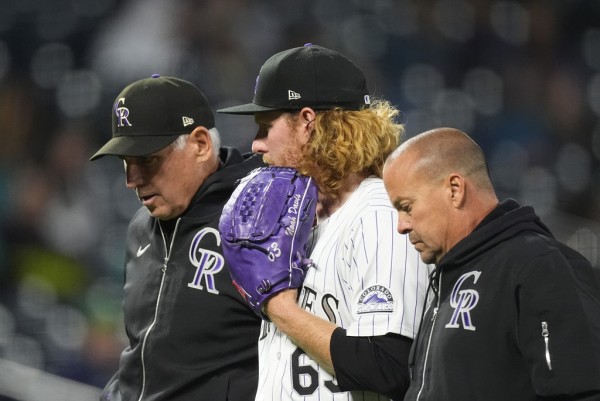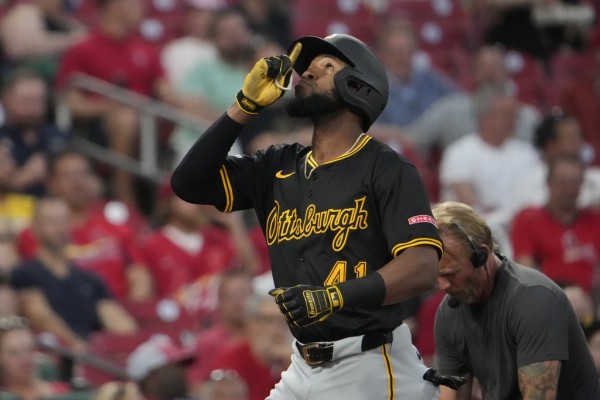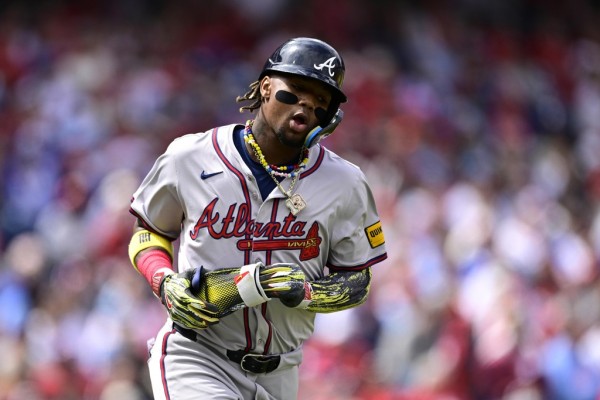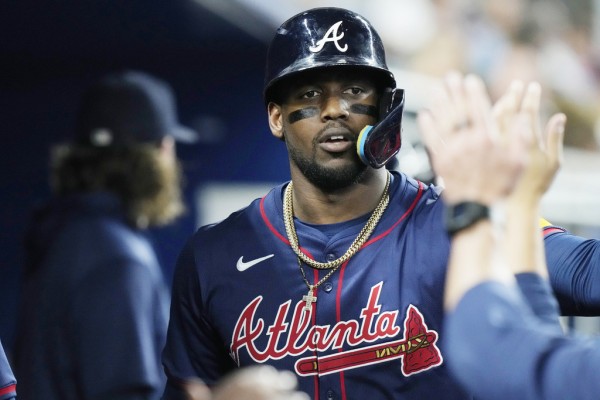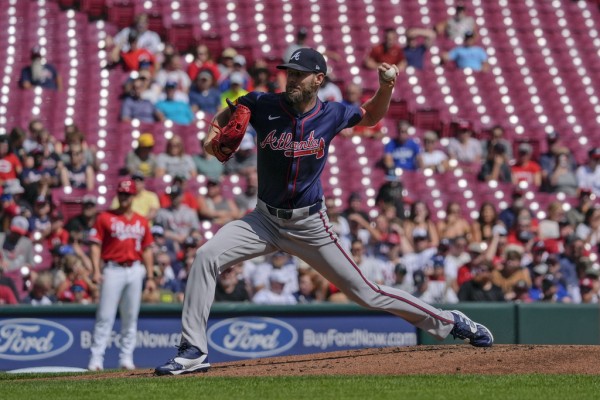ROYSTON — In a city where you can barely travel 500 feet without a street, development or complex bearing the name Cobb, baseball great Ty Cobb is a household word.
But when the Atlanta Braves prepared to leave Turner Field and turn that facility over to Georgia State, a part of Royston's legacy wasn't moving with the team.
A statue of Ty Cobb, a player whose history is rooted in Royston and Banks County, suddenly was being left behind — until the idea surfaced and an effort began in earnest to bring the 1977 Felix de Weldon representation of "The Georgia Peach" to Royston.
Julie Ridgway, director of the Ty Cobb Museum on Cook Street in Royston, shared a bit of how the city came to obtain the statue last week.
"Oh my goodness, I can't tell you how many hands have been in the pot, so to speak, to try to get it to come here," Ridgway said.
More than a year ago, a three-part derogatory comment by an Atlanta TV/Internet sportswriter sparked Ridgway to the action that ultimately led to the statue's journey to Royston.
Ridgway's initial response to the negative portrayal of Cobb based on myths was emailing the several hundred Ty Cobb Museum supporters to speak out against the news source in question.
"I was not even thinking about the statue coming to Royston," Ridgway said.
But an email response to Ridgway started the lengthy process of bringing "The Georgia Peach" to Royston, where it awaits a decision its new permanent home.
"At first nobody wanted to claim ownership and then all of the sudden when we wanted it, everybody wanted to claim ownership of it," Ridgway said.
Ridgway says Royston receiving and retrieving the statue is a big thing for the Franklin County city.
"I think it's such an honor," Ridgway said. "I am thrilled and it's just an honor."
She explains the significance of being the city being the home of "The Georgia Peach", as Cobb was known.
"Royston is the home of the very first baseball player that ever was inducted into the Hall of Fame," Ridgway said. "He had more votes than anybody else in that first class. There's only been one person in Major League Baseball since then to surpass that vote. People just don't get the importance of having that here and honoring him, and memorializing him as a Major League Baseball figure. He's almost like pre-Major League Baseball, he's a foundation."
The healthcare system in Franklin, Cobb, Hart and Madison counties that grew into Ty Cobb Regional Medical Center and later was acquired by St. Mary's was heavily supported by Cobb.
"Really his impact, as far as the philanthropy, goes worldwide," Ridgway said. "His education foundation that he established … yes, you have to be a resident of the state of Georgia, you have to have finished one year of college and do that with a B average or better, and you have to show a financial need in order to get that scholarship that one-fourth of his estate went to establish, but you can go to school anywhere in the United States that you want to, and then with those degrees they have impacted the whole world."
Royston Mayor David Jordan and many others have worked to obtain the statue for the city.
"I called county and city officials around Atlanta, and no one could tell me who owned — or would own — the statue," Jordan said in a statement. "Even the Braves franchise couldn't say for sure who owned the statue. It seemed that at first no one would claimed ownership, then everyone seemed to claim it. After many months of asking for the statue to come to Royston, we finally received word, after Georgia State University acquired the stadium, that we would indeed receive the statue."
Jordan is quick to give credit, both locally and in Atlanta, for those who helped the city obtain the statue.
"First, looking to Atlanta, we thank the Fulton County Recreation Authority, Georgia State University and our liaison in the process, Fulton County Commissioner and Atlanta Recreation Authority member Bob Ellis," Jordan's statement reads. "State officials supported our request, and we thank State Reps. Alan Powell, John Wilkinson and Lee Anderson. State Sen. Frank Ginn was our liaison with Georgia State University."
Cobb was born on property off Ga. 105 in neighboring Banks County.
"His birthplace is an old community over in the east part of Banks County called The Narrows," Ridgway said. "It's about eight miles or so from Royston, just over the line, and he was born in his maternal grandparents' home, but his grandparents and the family also had property here in Royston. So he was back and forth, but then when he was 8 years old they actually moved to the property here in Royston."
The son of William Herschel Cobb and Amanda Chitwood, Cobb was born Dec. 18, 1886, and died July 17, 1961.
From 1905-1926, he played for the Detroit Tigers. From 1921-1926, he was player/manager for Detroit. In 1927-1928, he played for the Philadelphia Athletics.
"Locally, citizens associated with the Ty Cobb Museum were enthusiastic and active in the acquisition of the statue," Jordan's statement reads. "We especially thank Julie Ridgway, director of the Ty Cobb Museum; Cobb historian Wesley Fricks, and members of the Cobb family for their support. Finally our city's manager, Ed Andrews, and his staff deserve praise for making the statue's travel to Royston safe and successful."
A decision on the permanent home of the statue in the city will be decided by the Royston City Council in the coming months.
Cobb's list of accomplishments and the 90 records he holds or shares is staggering.
Those accomplishments are highlighted at the Ty Cobb Museum in Royston, a facility Ridgway loves to discuss.
"Our goal is to create a series of exhibits that portrays the total man that Ty Cobb was: the ballplayer, the family man, the philanthropist," Ridgway said. "The things they can see are things from his career. We actually have a glove that he used to play with."
The museum is open from 9 a.m. to 4 p.m. Monday through Friday, and from 10 a.m. to 4 p.m. Saturday. It is closed on Sundays and all major holidays.
Admission to the museum is $5 for adults, $4 for senior citizens, $3 for children, and free for children 5 and under or military personnel.
"Our latest group of acquisitions from the Cobb family is a wonderful array of sterling silver trophies that were given to him, and some personal artifacts that were given to him from Major League Baseball folks," Ridgway said. "To me the holy grail is a bronze shoe, one of his cleats that he actually played in."
She said that bronzed cleat is from the same process used by parents to preserve baby shoes of that day.
"We love it," Ridgway said.
One exhibit Ridgway added is not from his career, but rather from today's Cobb fans.
"We have a unique display that I have put together myself," Ridgway said. "Yes, that is the 21st Century Fans, folks that have brought artifacts and left them at the gravesite. We have permission from the Cobb family to bring those to the museum so that they can be preserved, because unfortunately they take legs and walk off if they're left out at the grave too long."
Those artifacts often are personal tributes to Cobb from young fans.
"We have a bat and a cap," Ridgway said. "We have balls that have been played with. We have brand new balls that are autographed "To the greatest from your greatest fan". Little Leaguers that want the ball they won the championship with to be left on Ty Cobb's grave. It's incredible! A lot of people say the 21st Century children coming up do not know who Ty Cobb was. A lot of them don't, but a lot of them do."
Once a permanent home for the Ty Cobb statue is determined, Ridgway and others hope even more of this generation's young people will learn about "The Georgia Peach."
To learn more about the Ty Cobb Museum, visit tycobbmuseum.org or call (706) 245-1825.


